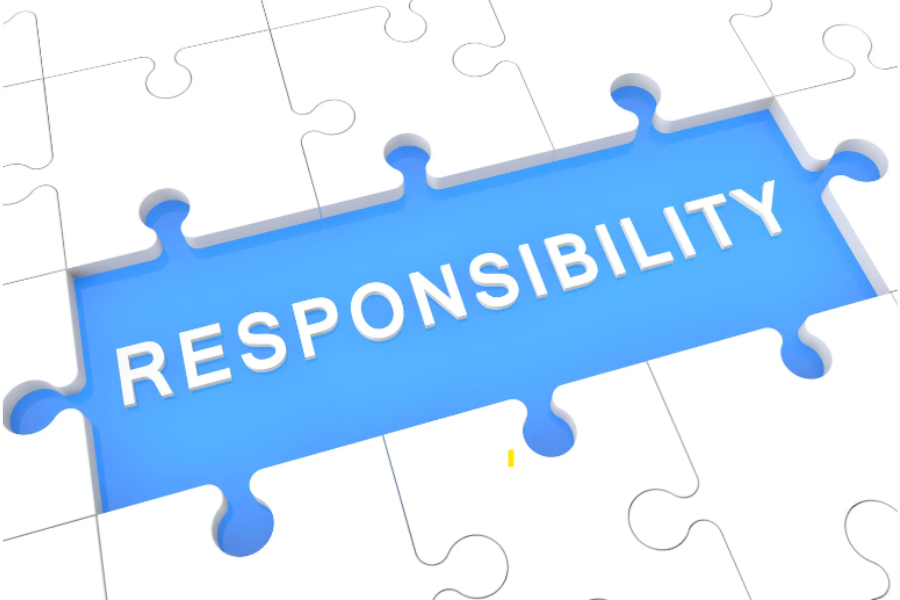The Ultimate Guide to Being a Mentally Tough and Successful Employee
The Ultimate Guide to Being a Mentally Tough and Successful Employee
Have you ever wondered how your mental state contributes to your career?
Never in our history has the subject of mental health at work or mental health in general been front and centre in the mind of Organisations.
COVID-19 has changed the landscape of the workplace, possibly forever! We’ve all had to get used to working from home; whether you’re lucky enough to have a dedicated workspace or are working from the kitchen table or sofa/bed (I hope not the latter), you've had to get used to working at home and all the pros and cons this creates.
If you had not wondered before how your mental state contributes to your career – you probably are now?
Just as the right attitude, skill set and habits can separate the average employee from a star employee, mental toughness can be the key to making any individual an incredible asset to their team. In fact, research suggests that your inner grit plays a crucial role in helping you to achieve your goals in health, life and business too.
While you might not be able to change things like the speed at which you learn new techniques, there is plenty you can do to improve your mental toughness. All it takes is the right approach and plenty of consistency.
What is Mental Toughness?
As an employee in Insolvency you will already have resilience but in the next 12 months you are going to need more, you might find that some of your peers are less prone to procrastination than you, or more naturally more motivated. However, none of that matters if you have mental toughness.
Grit is not about having the right inspiration and courage to excel each day. It's about building the right habits that ensure you overcome distractions and challenges and get the job done - no matter what. For instance:
- A mentally tough athlete constantly sticks to the same routines and never misses a workout.
- A mentally tough leader always keeps their eyes on their goals - even when things go wrong.
- A mentally tough employee pushes to accomplish great things - whether they feel motivated or not.
MYTH BUSTED - Mentally tough people don't have to be more talented, intelligent, or creative than their colleagues - they need to be consistent. By developing habits that help you to focus on the task at hand, no matter which obstacles come your way, you can become the kind of employee every manager dreams of. While willpower comes and goes, mental grit is always there.
What are the Characteristics of Mentally Tough People?
While mentally tough people might not have the talents or education to set themselves apart from the crowd at first glance, they're still the recruits that many employers crave.
People with grit see challenges to overcome where others see impossible barriers. They motivate their co-workers and maintain a positive attitude in the face of adversity. Some of the key characteristics of mentally tough people include:
1. Emotional Intelligence
Mentally tough people are often the cornerstone of workplace wellness programmes because they know how to tolerate negative emotions and come out on top. They can teach people how to deal with criticism and rejection positively and stay strong no matter what.
2. Confidence
People with grit know that their attitude has an impact on their performance. That's why they stay confident in themselves, their abilities, and their team. In leadership positions, people with mental toughness thrive because they encourage other people to feel confident too.

3. Versatility
While others run from change, mentally tough people know they must constantly adapt to stay on top. They're flexible and ready to embrace new strategies to suit their employer. These people can even lead the way when new initiatives and procedures are introduced to the workforce as they help to inspire adoption.
4. Durability
People with mental grit avoid overwhelming themselves by knowing their limitations. They say no when they must but they also push themselves to say "yes" as often as they can. This lowers the risk of people burning themselves out by doing too much.
How to Become Mentally Tough
Mental strength isn't genetic; it's an attitude and a way of life for star employees.
While everyone has ups and downs during their career, mentally strong people treat every experience as a learning opportunity, and never allow negativity to get the best of them.
Becoming mentally tough is about building the right habits into your daily life, so you can constantly impress your boss and achieve your goals.
1. Practice Mindfulness
Staff members with grit are mindful of everything. They know what their managers expect from them, what they need to accomplish in their role, and how they need to organise their day to be as productive as possible. Rather than focusing on the past or future, mentally tough people concentrate on the here and now.
For instance, you might start each day with a list of tasks you need to complete by the time you finish. This encourages constant mindfulness because it means that you can focus on each task according to its importance that day. By taking things one step at a time, you can reduce overwhelm and fight back against procrastination to become part of a high-performing team.
2. Take Responsibility and Learn from Mistakes
Mentally tough people know that mistakes happen - but you don't have to let them prevent you from reaching your goals. When something goes wrong for you, own up to your errors and show that you're willing to take responsibility for your actions, but don't dwell on the past.

Once you've taken ownership of your mistake, find a way to prevent the same problem from happening again. Mentally tough people embrace each failure as an opportunity to learn. Instead of fixating on your issues, create a plan of action to overcome them. For instance, if you missed your last deadline, you can organise your schedule more carefully in the future. On the other hand, if you think you don't have the right skills for a specific task, seek out training opportunities to boost your talent and your personal brand.
3. Visualize Success and Face your Fears.
Studies constantly show that visualising success helps us to accomplish great things. Ask yourself where you want to be five years from now. Do you want to be an Insolvency Manager, Director, Partner, take exams, work with certain people or on certain cases?
Once you know where you are heading in your career, establish a plan to take you to your goals. People with mental grit know that if they want to achieve their ambitions, they need to plan and face their fears. Even mentally strong people feel nervous at times, but they know they need to overcome that feeling to be successful.
Be ready to take a chance and try a new strategy in your role. Ask your boss for more responsibilities, consider implementing new tools with the approval of your manager, with WFH looking likely to stay long term, there is a plethora of interactive tools to help you be organised and stay on top of your game.
Only when you are outside your comfort zone can you grow.
About First 2 Recruit Ltd
First 2 Recruit Ltd is an owner managed recruitment consultancy providing a full recruitment service including; permanent and FTC positions in Accountancy Practice and Insolvency across the UK.
If you like this blog, why not check out more by visiting our Blog page on our website, we cover every recruitment topic and also have free reports and whitepapers that you might find useful. Visit www.first2recruit.co.uk
Alternatively, email office@first2recruit.co.uk or call one of our friendly team on 01722 440 168.